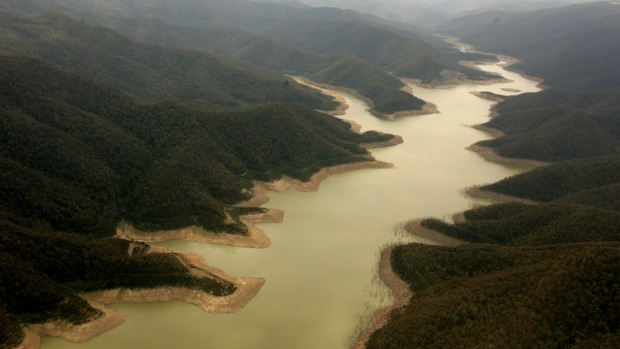RECAP: Experts have their say on a possible desalination plant order

RECAP: A busy day in water
FIGURES CALLED INTO QUESTION
With Victoria’s water storages on the decline, the government and specialist agencies are busy working out ways to best secure our water future.
It’s looking more and more likely that the government will make an order of water from the Wonthaggi desalination plant.
Even the minimum order (50 gigalitres) would be a fairly expensive option.
The Nationals leader Peter Walsh, who is the Shadow Minister for Water, said the argument for the order can be misleading.
‘Storages do drop over summer, and obviously they go up in winter and spring,’ Mr Walsh said.
‘My view would be that they want to justify the huge investment that was made.’
Click play to hear Peter Walsh
NEIL SUSPECTS POLITICAL MOTIVE
Earlier, Neil Mitchell took aim at possible order, also suspecting a political reason for the order.
He thinks ordering water from the plant should be a last resort, as Environment Victoria’s Nick Roberts said on Thursday.
‘I think it will happen next week and I think there’s a political motivation behind it,’ he said.
Ordering water would add a charge – albeit not a large one – to our water bills.
‘We pay more for the politics.’
MINISTER CONFIRMS DESAL OPTION
The order for water has not been officially made yet.
But Government Minister Jane Garrett confirmed it is ‘firmly being looked at by’ by Water Minister Lisa Neville.
‘We are the fastest growing state in Australia, we’ve had many years of below-average rainfall, it’s there as an insurance,’ Ms Garrett said.
Ms Garrett denied the order would be politically motivated.
She said her experience as Emergency Services Minister had shown her the stress that bushfires can put on regional dams.
Click play to hear Minister Garrett speak about Melbourne’s water future
NOT A LAST RESORT
Chris Williams from Melbourne Water doesn’t think using the desalination plant is necessarily the last resort.
He told Neil that water restrictions have a ‘significant impact’ on the community.
‘It’s not something you do lightly,’ Mr Williams said.
‘We look at all the measures to ensure a reliable, high-quality water supply.
‘Restrictions become more of a consideration further down.’
Click play to hear from Chris Williams















